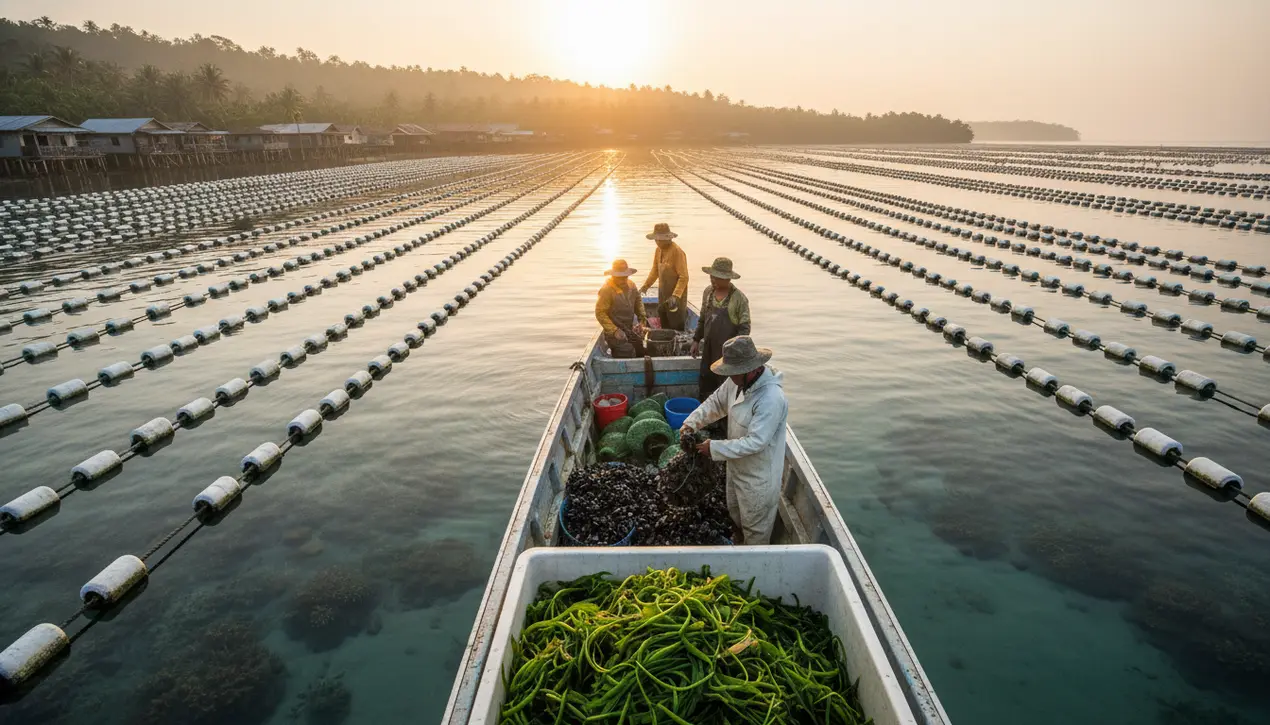
Scienceclimate scienceClimate Change
Harnessing the Ocean's Potential for Climate and Food Security.
RA
Rachel Adams
2 hours ago7 min read2 comments
The ocean, our planet's vast, beating blue heart, stands as a critical ally in the intertwined battles against climate change and global food insecurity, yet delivering the level of sustained, coordinated investment required to truly harness its potential demands a strategic revolution in how we view marine capital. As a biologist who has spent years studying fragile coral ecosystems and the intricate dance of marine life, I see this not as a mere financial challenge but as an existential imperative, a race against time to deploy a strategic approach that leverages public and philanthropic capital to establish a credible pipeline of investable, blue-economy projects.Think of the ocean not as a passive resource to be extracted, but as a living, breathing system that offers powerful climate solutions—from the carbon-sequestering power of mangrove forests and seagrass meadows, which can store up to four times more carbon per area than terrestrial tropical forests, to the vast potential for sustainable aquaculture that could relieve pressure on overfished wild stocks and feed billions. The recent UN Ocean Conference underscored this, with scientists from the IPCC warning that without a significant increase in marine protection and sustainable management, we risk passing irreversible tipping points, from ocean acidification dissolving shellfish larvae to warming waters causing mass coral bleaching events that devastate biodiversity and the coastal communities that depend on them.The financial gap, however, is staggering; the World Bank estimates that achieving Sustainable Development Goal 14, 'Life Below Water,' requires nearly $175 billion annually, yet current investments are a mere fraction of that. This is where the strategic use of public and philanthropic funding becomes paramount—it's about de-risking these nascent ventures, much like the Green Climate Fund has done for terrestrial renewables, to attract the trillions in private capital sitting on the sidelines.We can look to successful precedents, such as the Seychelles' pioneering blue bond, which restructured its national debt to fund marine conservation, or the growth of sustainable kelp farming in Alaska, which not only captures carbon but creates jobs. The consequence of inaction is a future where coastal hunger and climate-driven migration become the norm, but the opportunity is a resilient, blue-green economy where the ocean’s bounty is secured for generations. It requires us to think like the ecosystem itself: interconnected, resilient, and abundantly life-giving.
#climate change
#ocean economy
#sustainable investment
#food security
#livelihoods
#featured
Stay Informed. Act Smarter.
Get weekly highlights, major headlines, and expert insights — then put your knowledge to work in our live prediction markets.
Comments
Loading comments...
© 2025 Outpoll Service LTD. All rights reserved.